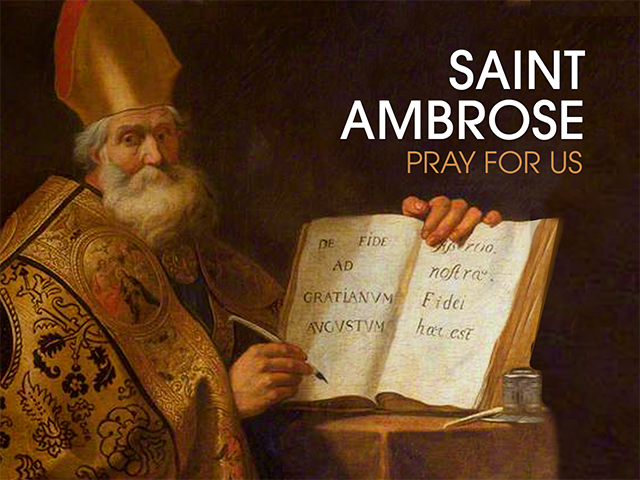



St. Ambrose of Milan (c. 340–397 A.D.) was born in Gaul (modern France) and became a successful lawyer and governor in Milan, Italy. When the bishop of Milan died in 374 A.D., a movement arose among the people to demand that Ambrose take his place. At the time Ambrose was only a catechumen preparing for baptism; he was not yet a Christian. He went into hiding in an attempt to escape the ecclesiastical appointment. His attempts to hide were unsuccessful; the emperor forbade anyone to gave him shelter, which forced him to give himself up and submit to the will of the people to be their bishop. Ambrose quickly received the sacraments, including Holy Orders, and was ordained the Bishop of Milan a week later. He became a very holy leader, giving his property to the poor and his land to the Church, and making himself directly available to the needs of all people. He also worked tirelessly to defend orthodox doctrine, especially against the pervasive Arian heresy which denied the divinity of Christ. St. Ambrose was the saint who introduced lectio divina, the practice of prayerfully meditating on the Sacred Scriptures, into the Latin Church. This informed his eloquent writing, preaching, and teaching, earning him the nickname "honey-tongued doctor." Ambrose was the bishop who converted and baptized St. Augustine of Hippo. He is one of the four original Doctors of the Church, and his statue is one of four that upholds the Chair of St. Peter inside St. Peter's Basilica in Rome. St. Ambrose's feast day is December 7th.